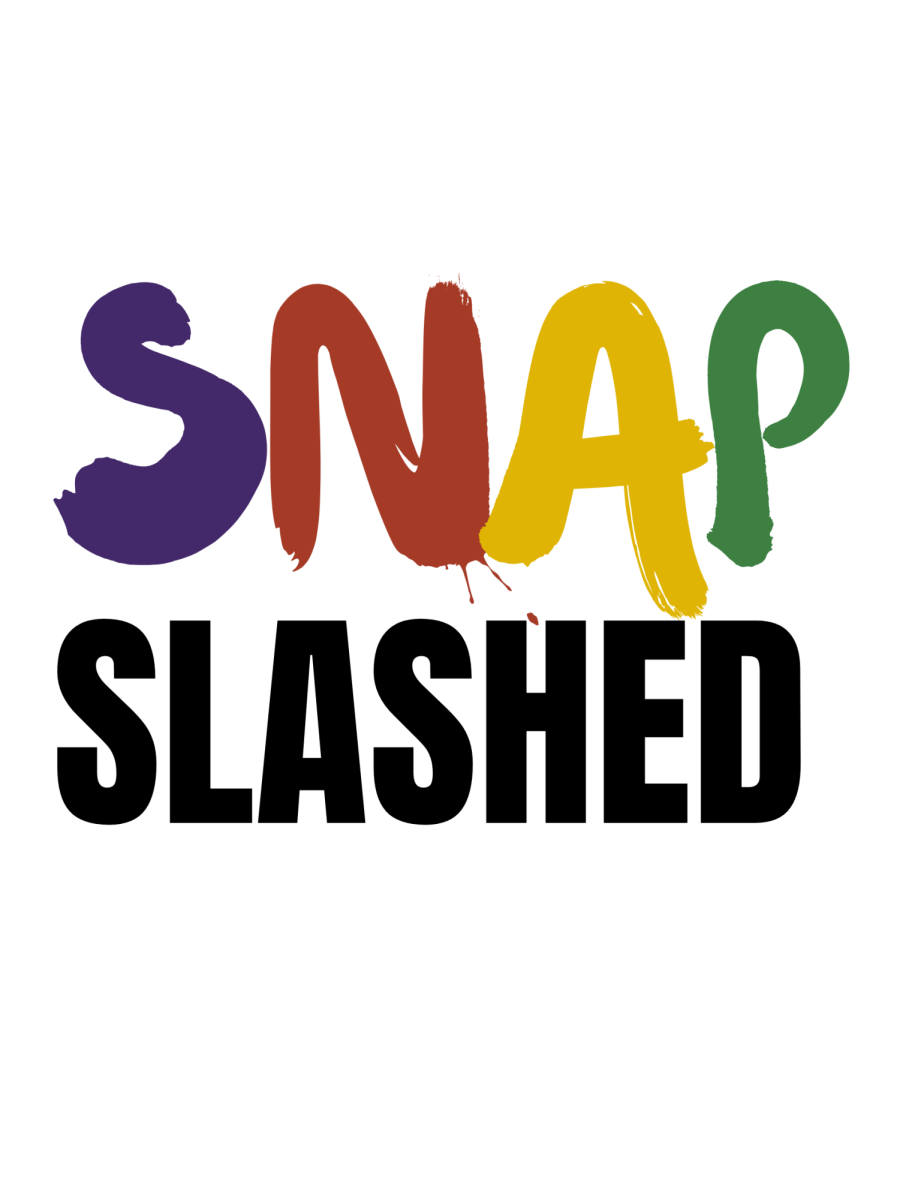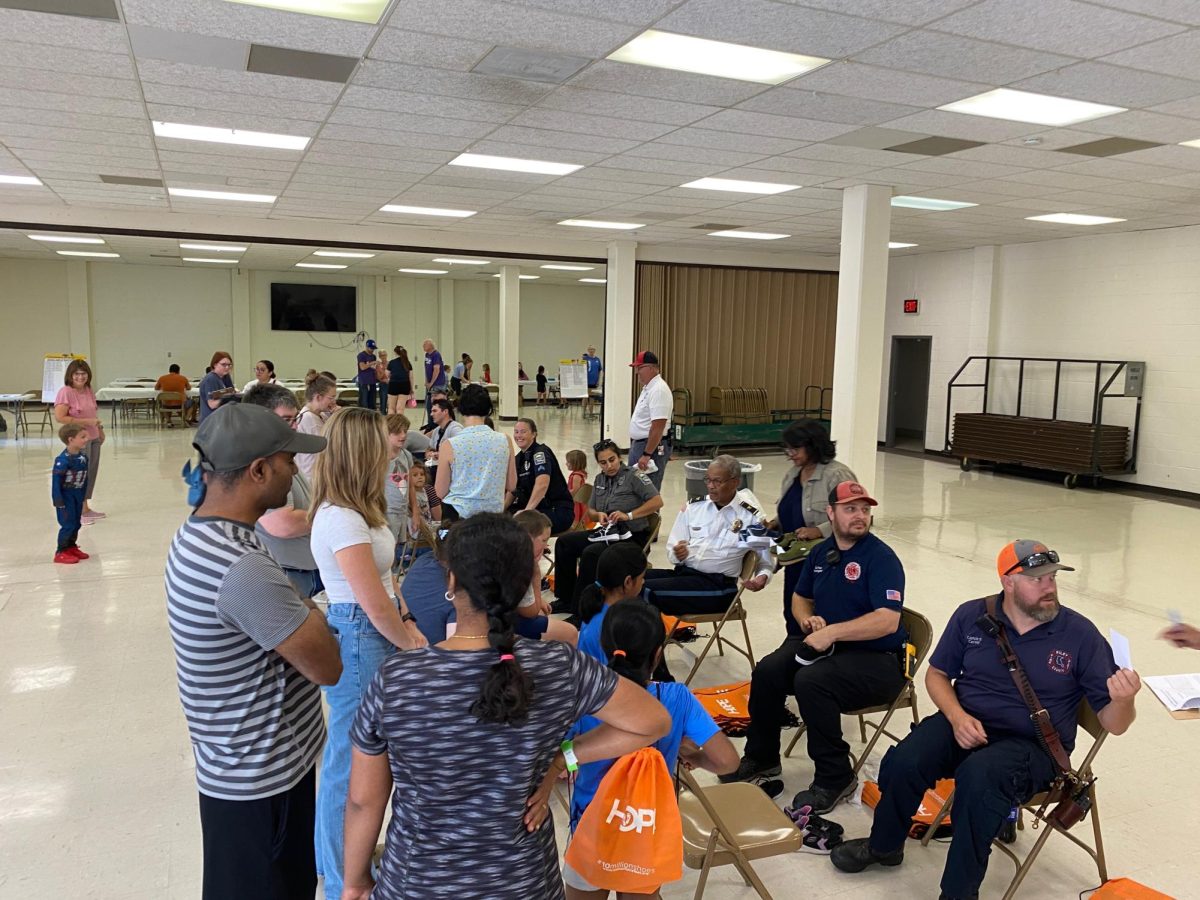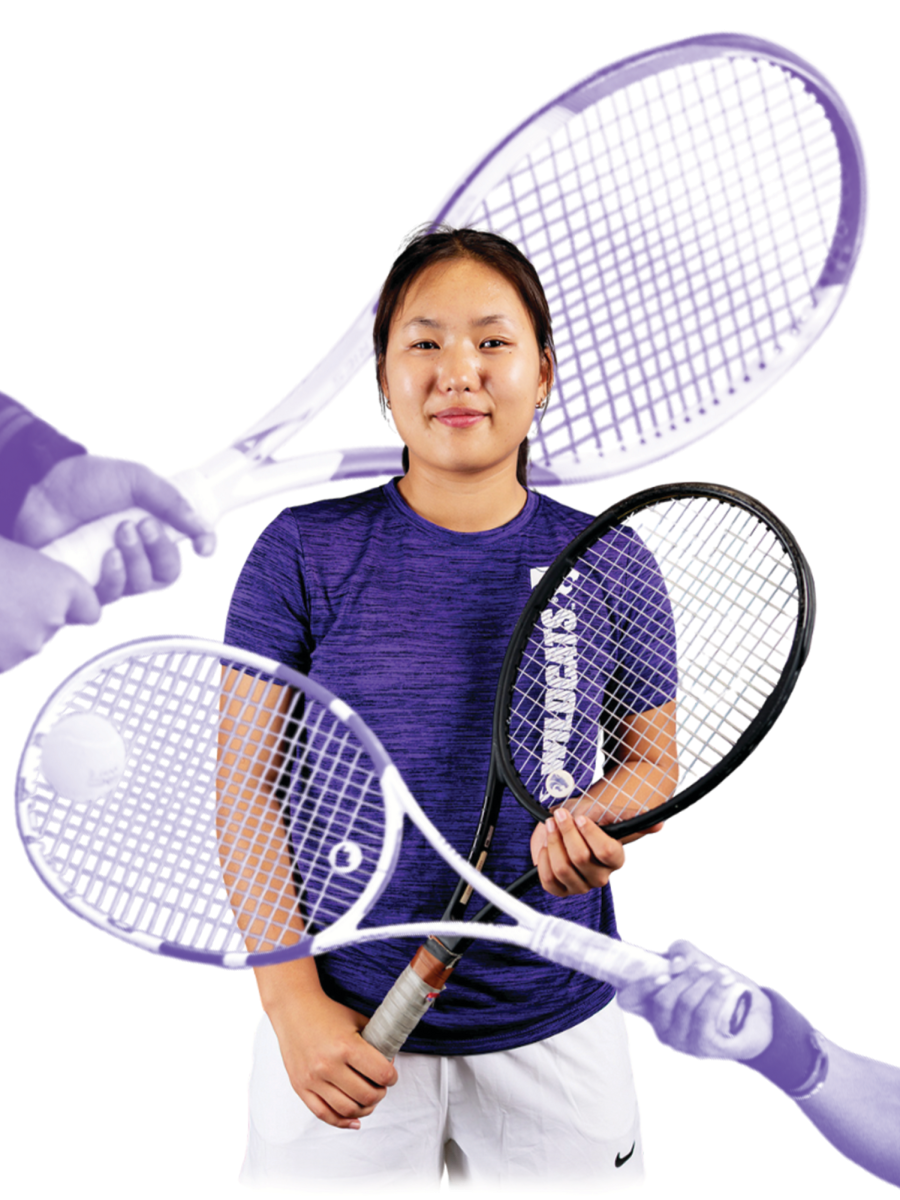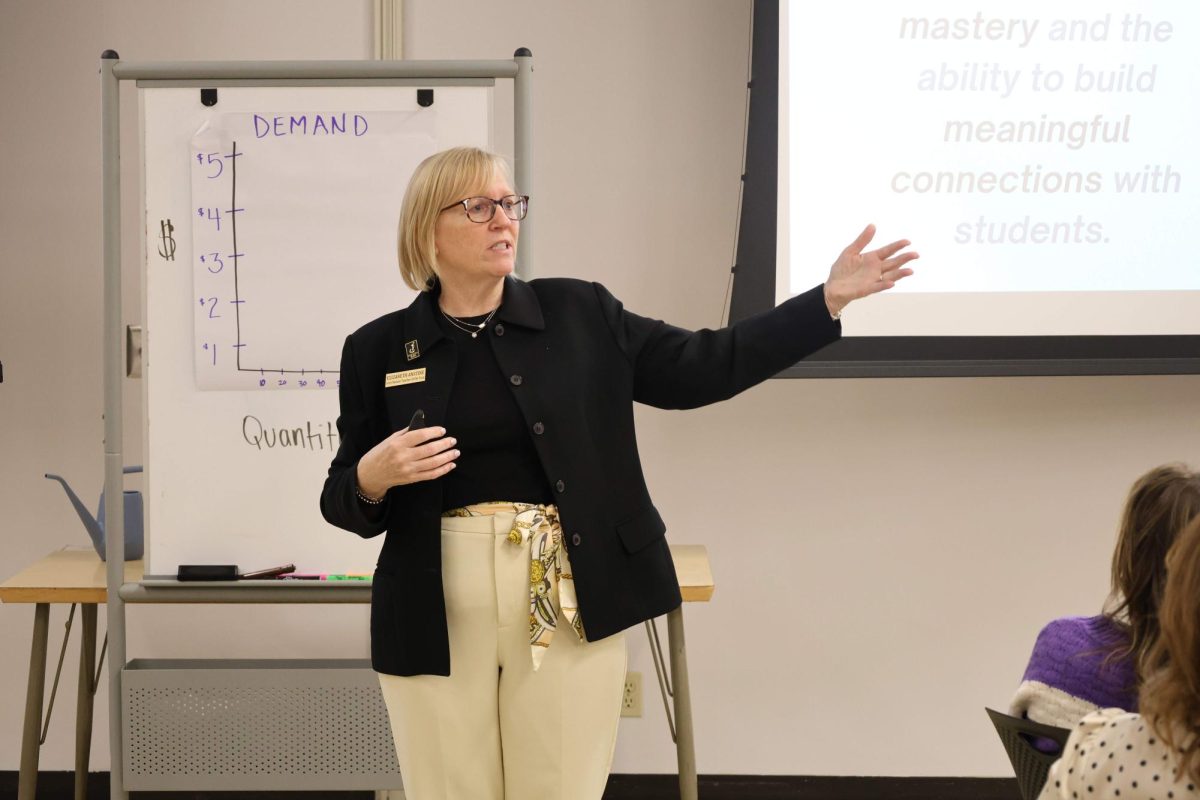Editor’s Note: Amanda Lickteig’s name was corrected from an error in the original version.
The Association of Teacher Educators – Kansas hosted its first in-person conference since the start of the COVID-19 pandemic on April 4.
ATE-K President Alan English said in-person events had a greater level of investment from attendees than virtual events.
“When teachers and teacher educators get together, we have a natural tendency to talk about pedagogy — the art of how one teaches,” English said.
ATE-K works with the National Association of Teacher Educators and other professional organizations to share research and promote professional growth of college and public school educators in Kansas.
English said ATE-K helps educators continually update their knowledge of current research in the science of education.
“Being an effective educator is both an art and a science,” English said. “… Many of the presenters today are conducting research out in the field and giving us updates as to what the most up-to-date science is on the state of education. Education is simultaneous to that in art, and we’re sharing the things that have worked or haven’t worked with one another, and continually trying to hone our craft. Because I think an effective teacher is continually trying to improve oneself.”
The conference included a keynote presentation from the 2025 Kansas Teacher of the Year winner, Leavenworth High School teacher Elizabeth Anstine.
Anstine said all teachers should strive to master their content, build positive connections with students and differentiate teaching styles based on a student’s individual needs.
“Without instructional clarity, your students are not going to succeed,” Anstine said. “They have to have that content knowledge. … You can’t scaffold learning if you don’t know where it’s going and where you’re trying to get your students to end up at the end, and you certainly aren’t going to be able to differentiate if you don’t understand the standard.”
This year’s conference included breakout rooms which included presentations of academic papers, posters and pre-publication research from researchers across the state.
ATE-K Vice President Dr. Amanda Lickteig said the presentations included a diverse array of topics such as the use of artificial intelligence in teaching, biography-driven instruction and literacy.
“Getting together like this is really about the joy of connecting,” Lickteig said. “So much of what we do at times feels like it is siloed work. We work by ourselves in our closed classroom doors. And having these opportunities to collaborate and have a dialogue with colleagues is really rejuvenating.”




















































































































